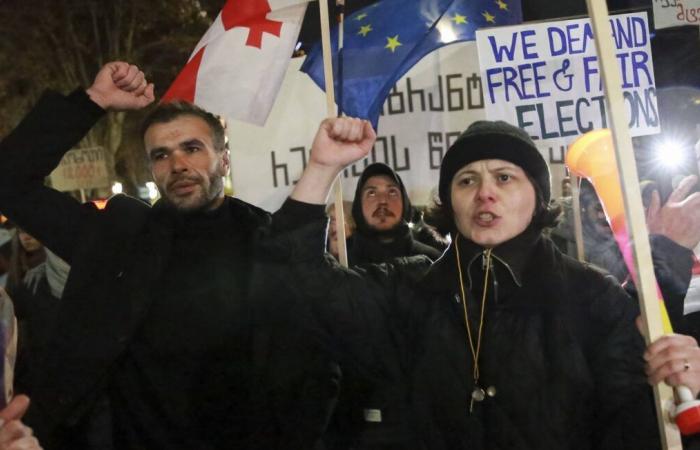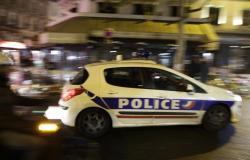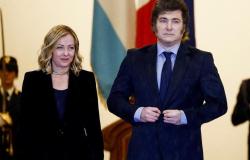An electoral college must appoint a new president on Saturday in Georgia, a position promised to a radical supporter of power during a vote which could accentuate tensions in this Caucasian country, shaken by a wave of pro-EU demonstrations.
This former Soviet republic has been in turmoil since the legislative elections of October 26, won by the ruling Georgian Dream party, but deemed rigged by the pro-European opposition. At the end of November, the decision of the authorities – accused of pro-Russian authoritarian drift by its critics – to leave the question of integration into the EU pending until 2028 led to demonstrations punctuated by violence. In the capital, Tbilisi, the main anti-government demonstration, every evening in front of the Parliament, brought together thousands of people again on Friday in calm.
Conflict between the current and new president
But the crisis could worsen on Saturday with the expected election as president of far-right ex-footballer Mikheïl Kavelashvili, a figure loyal to the government. A rally has already been announced for the morning in front of Parliament, where an electoral college controlled by the ruling party will have to nominate it by a vote boycotted by the opposition.
The current head of state, Salomé Zourabichvili, who has limited prerogatives but is at odds with the government and supports the demonstrators, said she would refuse to give up her mandate until new legislative elections have been organized. .
More than 400 demonstrators arrested
Salomé Zourabichvili, during a press conference on Friday, considered that the designation the next day of the president was a “parody” and would be “unconstitutional” and “illegitimate”. During the first two weeks of protests, police used tear gas and water cannons to disperse daily gatherings of thousands of people. Protesters, for their part, used fireworks against the police.
More than 400 demonstrators were arrested, according to official figures, including at least thirty for criminal offenses, punishable by severe penalties. Multiple cases of police violence against demonstrators and journalists have been documented by NGOs and the opposition, a repression denounced by the United States and Europeans.
A legitimacy already contested
The Georgian Dream claimed that the opposition was responsible for the violence, noting that the rallies had been calmer for several days. Police raids led to the seizure of quantities of fireworks and the arrest of several opposition leaders. On Friday, Washington announced that it had banned visas from around twenty people accused of “undermining democracy” in Georgia, including serving ministers and parliamentarians.
Not yet elected to the post of president, Mikheïl Kavelashvili sees his legitimacy already contested by experts in constitutional law. Because Parliament ratified the mandates of elected officials, in contravention of the law which required waiting for the court decision concerning Salomé Zourabichvili's request to annul the results of the legislative elections.
“Georgia is facing an unprecedented constitutional crisis,” Vakhtang Khmaladze, one of the authors of the Georgian Constitution, told AFP, adding that “the country finds itself without a legitimate parliament or executive power. »






